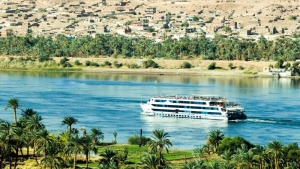
Blog
Timeshare Resale markets in different countries: Part 6. Why are Italian Real Estate Agencies Not Succeeding in Selling Timeshares?
There are a lot of timeshare resorts in Italy, but not enough.
Following the timeshare boom in Spain, timeshare came to Italy in the early 80s. The timeshare resorts started spreading over the entire Italian coastline, in all ski regions, and close to numerous places of attraction and cultural heritage sites. But that's where the similarities end.
Like any other country new to the timeshare industry, Italian authorities faced the task of describing timeshare legally, creating regulations to ensure control over the industry, and ensuring the safety of buyers and owners of this property.
It was decided to classify timeshare as a type of real estate. As a result, Italian timeshares can be considered one of the most reliable types (you purchase a share of real estate), but at the same time, they are the least flexible and the most complicated in structure.
Traditionally, the founders of timeshare resorts are Italian developers, the resorts are managed by Italian management companies, sales were handled by Italian marketing companies, and they sold mainly to Italians. These timeshares are extremely convenient specifically for Italians, and timeshare resorts have only begun to integrate into the international tourism system in the last 15 years.
Italians traditionally preferred to holiday within their own country. Fortunately, there are endless places to enjoy. Italians bought timeshares mostly to visit their home resort. The peak season weeks of Mid-August and Christmas were extremely popular and sold out first. Having sold out of these peak weeks, resorts had difficulty selling the rest of the year. That’s when the marketing companies turned their attention to holidaymakers from other countries, as their holiday season may differ from Italy's.
Today in Italy, there are 138 timeshare resorts affiliated with the RCI exchange system and 103 resorts affiliated with Interval International.
Timeshare resale in Italy is considered one of the most difficult in Europe. The reason is that even after so many years, there are still no specialized timeshare resale agencies.
Attempts have been made to create online billboards, but without providing assistance with timeshare ownership transfer and negotiation between buyer and seller, they just did not succeed.
Timeshare Resales fall on the shoulders of real estate agencies since timeshare in Italy is a type of real estate. But reselling timeshares through real estate agencies is extremely difficult.
The main reason is that real estate agencies do nothing to promote timeshares and do nothing to attract potential timeshare buyers.
Timeshare advertisements are placed together with holiday home offers, making them almost impossible to find among the numerous real estate listings. There is no way to search only for timeshares, there is no way to segregate them, there is no such option in the search filters.
There is no way a potential buyer could find, for example, all the timeshares available for resale in Sardinia, or in Sicily, or in ski resorts, or in Tuscany like a buyer would normally be looking for.
The buyer is usually looking for timeshares in a specific region. They want to compare offers by price, by the location of the timeshare resort on the map, and by the infrastructure of the resort.
Instead, the buyer should search on the real estate website for the timeshare by exact address. The timeshare ad only describes the apartments themselves and has poor quality photos (of course, can’t imagine somebody making good pictures on holiday of how the bedroom or the kitchen and bathroom looks like, or even less chances of somebody inviting a professional photographer to do this). What is missing in these ads is the most important thing to influence the timeshare sales – there is no description of the timeshare resort infrastructure. A timeshare is valuable over the purchase of the holiday home by having on-site resort amenities such as a large swimming pool, children's pool, a gym, a playground and children’s animation, bars and restaurants, a private beach, free bicycles, horse riding, surfing, storage rooms and drying rooms for ski equipment, ski lifts, spa, tennis courts, golf, and much more. If you deprive the timeshare advertisement of all these attractions and at the same time do not provide a link to the timeshare resort website, then you are left with unattractive photos of walls, beds, kitchens, and a crooked view from the balcony.
But that's not the only problem with selling a timeshare through a real estate agency.
The area is full of small real estate agencies. You would easily find a few in each tiny little town. The chances that your buyer will walk into exactly the agency where you placed your sales offer tend to zero.
And then, all these agencies publish information only in Italian, and in most situations, they don’t even have agents who could communicate with foreigners in any language other than Italian. This means that your offer for sale will remain inaccessible to foreigners who would probably be very happy to buy a timeshare in Tuscany, Sicily, Sardinia, the lakes, or the Dolomites.
What can we recommend to timeshare owners in Italy to achieve the resale of their timeshare?
Owners of Italian timeshares should list them with international timeshare resale agencies which specialize only in selling or renting out timeshares. At this moment the leaders in this area are English agencies, of which we currently highlight Travel & Leisure Group Ltd (https://www.travelandleisuregroup.ru) and Timeshare Online (https://www.timeshareonline.eu/index.php)
Global Insights: Analyzing Timeshare Resale Markets Worldwide. Chapter 5: Timeshare Resale Market in Asia Pacific.
The timeshare market in Asia Pacific is considered the youngest. Historically, it was developed and refined for European tourists, who were invited there by European timeshare sellers. One of the pioneers in the region was the Royal Resorts group, which is now part of the Karma Group empire. Founded by an enterprising entrepreneur who climbed the timeshare sales ladder in Tenerife, from a street consultant inviting tourists to presentations to a sales director who invested all his money in a resort in Goa, India, it is now the most well-known group of resorts in the region. These resorts are located in India (Goa, Kerala, Bangalore, Jaipur, in the North), Thailand (Phuket), Indonesia (Bali, Lombok, Java), Australia, as well as in Germany (Bavaria), Italy (Tuscany), the United Kingdom (London, Isles of Sicily, Birmingham), Greece (Crete, Mykonos), and France (Saint-Tropez, Normandy).
After Goa, timeshare resorts appeared in Thailand and almost immediately in Bali. The timeshare industry in Southeast Asia in the late 90s resembled Tenerife in the early 80s, not only in terms of market uncontrol but also because the new market attracted the same players who were pushed out of Europe by the strict legislation introduced at the time. However, the market did not turn wild because local entrepreneurs in these countries actively entered the industry. And as it is known, order is quickly established under such conditions.
One feature of most Asia Pacific resorts is that foreigners cannot own land, and therefore timeshare resorts, by their legal structure, are either limited membership clubs or long-term leases for up to 35 years. Such a shorter form of timeshare has also formed different resale requirements. The point is that many timeshare owners, after active use for 15-20 years, if for various reasons they had to stop using the timeshare, do not spend time selling the remaining 10-12 years of use and simply abandon it or write it off to the resort. Moreover, unlike timeshares that qualify as real estate (in Italy, France, partially in Spain), club membership type does not accumulate multi-year dues and then collects them but simply excludes from membership due to non-payment of one or two membership dues and does not chase after anyone.
This does not apply, of course, to very valuable and expensive Asia Pacific resorts. Memberships such as Marriott, Absolute... Karma, which cost from €15,000 to €20,000 per week on the primary market. They are not abandoned but an effort is made to return some of the money. They are very popular on the secondary market because there are those who really liked these clubs but who are sorry to pay the full price for them.
And here in resales, the same ubiquitous English agencies dominate, among which we highlight as the most successful Travel & Leisure Group Ltd (https://www.travelandleisuregroup.co.uk ) and Timeshare Online (https://www.timeshareonline.eu/index.php ). There was actually no expansion into the Asia Pacific market. The main buyers in the region are the English, Australians, and Europeans, who are fluent in English. When Indians started actively buying timeshares, the situation in the resale market did not change, as English is practically the first language for the middle class in India. There is a high level of trust in English companies in the region. This prevented local timeshare sales agencies from competing. Especially since it is always difficult for young companies to compete with those that have over 20 and 30 years of experience in the market, which have a clear strategy and responsible approach.
But this is also a wonderful opportunity for timeshares from this region to gain access to international buyers worldwide, but primarily to Europeans.
It is also worth noting that timeshares from Southeast Asia are practically not popular in America. This is understandable, for regular travel, Americans choose Florida, California, Mexico, and the Caribbean, where air travel is well established and very cheap. And to the fabulous Bali, Thailand, Goa, and Vietnam, you can go through exchange.
We deliberately put two regions in parentheses in Asia Pacific - China and Japan, where timeshares are quite developed and popular but which are very closed markets and are aimed both at their compatriots and their own resorts, thereby falling out of the interest of foreign buyers and timeshare owners.
In Conclusion: If you own a timeshare in India, Thailand, Australia, Vietnam, in Bali, etc., it is reasonable to resell it through English agencies, of which we currently highlight Travel & Leisure Group Ltd (https://www.travelandleisuregroup.co.uk ) and Timeshare Online (https://www.timeshareonline.eu/index.php)
Global Insights: Analysing Timeshare Resale Markets Worldwide: Part 1: Timeshare Resale Market of USA.
With this article, we begin a series of articles about market differences and national timeshare resale agencies.
The American and European timeshare markets are fundamentally different. Fundamentally because they have serious legislative differences, marketing differs too much, and the actions of buyers themselves vary.
American buyers primarily purchase timeshares in resorts located in USA, the Caribbean region, Mexico, and other South American countries. The most popular are timeshares in the Hawaiian Islands, the lake district of Utah, the area of numerous amusement parks in Orlando, and the tip of Florida Keys and in California. And, of course, there are well-known hotel groups that have their own timeshare complexes – Marriott, Hilton, Melia, Ritz Carlton, and others.
If the timeshare you want to sell is located in USA (South, North, Central, and in the Caribbean), it's worth considering the American market for resale.
- Do Americans really not buy timeshares in Europe?
- They do. But, of course, not as much as on their own continent. Americans purchase timeshares exclusively if they are in the region where their roots are, to visit distant relatives or not lose their roots. For this, they choose timeshares in ancient English estates, French castles, Tuscan and Ligurian villas. Only such exclusivity can justify the purchase of cramped apartments by American standards.
American apartments are almost twice the size by standards compared to European ones. Also, it should be noted that exchanging (intercontinental) a European timeshare for an American one will always cost twice as much, and if an American family does not plan to holiday in Europe annually, it is still preferable for them to own an American timeshare. For a complete picture, add extremely cheap domestic flights in USA and their diverse geography.
American (including Canadian) agencies are very similar to real estate agencies; for their work, they must obtain a real estate sales license, which requires mandatory education – the course is quite expensive and lengthy, the exams are serious, but the responsibility of the agencies is high financially.
There are agencies that, like in real estate, do not take upfront payments, but they also do not advertise timeshares. In this case, the buyer is someone living nearby or someone who knows this agency, who is more interested just in case if they have timeshares for sale. Most often, they offer secondary weeks of resorts located nearby. Their already small number of sales decreases annually because buyers go to global internet resources.
Most agencies take money upfront for advertising, as well as a percentage of the sale. In some cases, they also sign an exclusive contract. The cost of advertising is two to three times higher than European prices. This doesn't bother Americans, who are used to paying high fees to specialists.
Americans set prices on average 25%-30% lower than primary market prices. Americans don't need to be explained that the secondary market is lower than the primary one and that it's impossible to sell for the same amount as bought, unless at least 30 years have passed of "inflations-devaluations-tourist booms of the region," etc. High prices on the secondary market are rare – it's usually an overconfident owner who considers their timeshare extremely exclusive. This won't take them far. The prices listed on the website and in price lists do not include agency fees of 5%-10%, as well as expenses for checking and re-registering the timeshare and taxes.
Also, don't forget that although tens of thousands of timeshares are sold and bought annually in the USA, the number of timeshares listed for sale is many times higher. Among them are not very popular resorts and at extremely low prices.
We actively cooperate with American companies when buyers approach us for famous resorts on American continents and also carefully monitor changes in this market.
Let's summarize: the timeshare that can be sold on the American market is primarily a timeshare of an American resort in a popular tourist area. If you want to sell a timeshare in Tenerife or Costa del Sol, taking it to America is a waste of money and time. There's plenty of similar properties there, but more modern and more comfortable.
Something New: A Timeshare River Cruise
Especially for those who find a timeshare lacking in active holidays, who crave more than just lying on the beach, seeking vibrant experiences and thrills, a new timeshare project has emerged – the first river cruise timeshare, and in a location bursting with breathtaking sights and attractions.
It's worth noting that even before this, timeshares weren't limited to apartments at beach, ski, golf, spa, and urban resorts. There are traditional narrow canal boats in England that offer a unique journey through the English canals with various types of locks and stops at any place you fancy. There are timeshare holidays on catamarans in the Caribbean, the Red Sea, and the Mediterranean, where you can sail from island to island for a week, stopping at trendy or secluded bays and picturesque beaches. And then there's the jewel of timeshares – floating glass apartments in Venice, allowing you to cruise the canals or moor in the most beautiful spots in Venice.
Karma Karnak is the name of the four-deck timeshare cruise by the Karma Group, introduced at the beginning of this summer. The first voyage hosted special guests of the Karma Group and representatives of the exchange company RCI, with which this timeshare project is affiliated for timeshare exchanges.
A week-long cruise from Luxor offers timeshare owners an unforgettable journey to the ancient and modern marvels of Egypt.
Accommodation is in cabins of three types, for two or three people, designed in a contemporary style with Eastern design elements that immediately set a special mood for the guests.
The fusion cuisine of the buffet restaurant features dishes from around the world by a renowned chef, who delights guests with Mediterranean cuisine as well as dishes from North Africa and the Middle East. The middle deck also has an à la carte restaurant and lounge bar, offering a different menu for each day of the journey.
On the upper deck, there is a sun terrace with a swimming pool. During the cruise, guests can enjoy evening entertainment, Egyptian-style parties, cocktail receptions, Nubian shows, and belly dancing.
Karma Karnak offers guests unforgettable excursions through the Land of the Pharaohs, with many stops to savour the journey of a lifetime. Tripadvisor has already awarded this trip 5 stars and an A category.
The Karma Resorts group, previously known as Royal Resorts, being pioneers in timeshare in regions like India, Thailand, and Indonesia (Bali), now also has resorts in Italy, Spain, Greece, the United Kingdom, Germany, France, and Vietnam.
https://karmagroup.com/gallery/karma-karnak/
Is There Seasonality in Timeshare Resales?
We are often asked when is the best time to sell a timeshare, whether there is seasonality in sales, and when are the best chances. We have been tracking international timeshare resale markets for over 20 years and have certainly noticed certain patterns.
Traditionally, the most successful months for timeshare sales have been and remain the winter months, with December leading the pack. Year after year, December sees the highest number of timeshare purchase agreements. There are several reasons for this.
December is the time for gifts, and frequent buyers are family members purchasing timeshares for their children and loved ones. These are often happy timeshare owners who select timeshares in the same club or at the same time they already own.
The second active group of buyers are those who have encountered problems with tour operators or found independently booked accommodation too expensive and have decided to take charge of their future vacations. These buyers are more complex, they take longer to consider options and consult before making a decision, but they tend to make more expensive purchases.
The third category is corporate buyers or organizations. At the end of the year, some organizations seek to reward their employees with vacations, and timeshares are very convenient for this purpose, as the employee can choose where and when to go during the year. In some European countries, companies receive tax benefits for organizing employee vacations, making it doubly advantageous to purchase timeshares before the end of the calendar year for tax reasons. Organizations typically purchase blocks of 6-20 weeks of timeshares at various resorts in different regions or within the same resort group in different countries. It takes some time to form a block, and prices have to be reduced to fit within a certain budget.
The next surge in purchases is closer to the Easter holidays, when Europeans again encounter extremely high prices for hotel and apartment stays and start thinking about how to save without sacrificing quality. These buyers have attended presentations but for some reason did not buy, although they liked the timeshare concept. Often they did not like the pushiness of the consultant. These buyers are looking for timeshares 30%-50% cheaper than at presentations, but still stick to a presentation budget. They are negotiable. These are traditional buyers from March to early August.
But there are new trends that are fundamentally changing the market rules. These are primarily buyers who during the presentation, "under the table on their smartphone," find resale agencies to compare prices. This is not just a trend of the last five to seven years, it is gaining momentum. There are known cases where a buyer, without leaving the presentation, negotiates with a resort representative and a resale agency employee online.
Why do these buyers have such a strong influence on the resale market today? Because they buy not during holidays or trips, but when they are being sold timeshares at the resort. And as you know, many resorts hold presentations year-round. This means that your buyer can show up at any time.
And finally. Until recently, October was a quiet month in the resale market. But the last 2-3 years have changed that too. October buyers are those who have received an extremely high bill for timeshare payment, are dissatisfied, and would like to switch to another resort where the membership fee will be lower or the timeshare usage will be more profitable. Often these buyers purchase not 1-2 weeks of timeshares, but 3-4. But they also meticulously review resorts and ask a lot of questions.
If you want to find out when timeshares are sold more actively, specifically for your resort, week number, or apartment size, ask this question directly to our specialists +39 306 588 188 or email: This email address is being protected from spambots. You need JavaScript enabled to view it.
CATEGORIES
ARCHIVES
OUR LATEST BLOGS
-
21 May, 2024Timeshare Help Line in Italy
-
04 Feb, 2024RCI 50th anniversary
-
05 Nov, 2023How Much Can You Get from Selling Your Timeshare?
ABOUT US
Unique company, the only one on the territory of CIA that specializes in timeshare issues of all the arias and complications. Operational since 1996.
Our services
Recent Posts
- GETTING YOUR MONEY BACK FOR A TIMESHARE: Selling a Timeshare Through a Third Party, Using Intermediaries: How Specialised Agencies Handle Timeshare Sales
- Is Renting Out a Timeshare Realistic, and How Much can you Get?
- Something New: A Timeshare River Cruise
- Is There Seasonality in Timeshare Resales?











